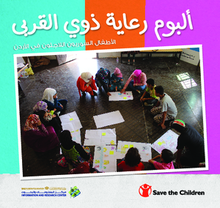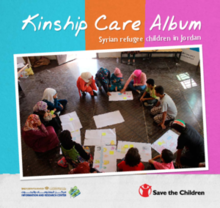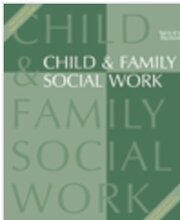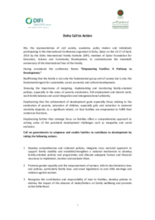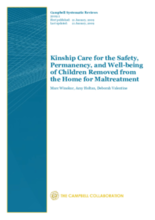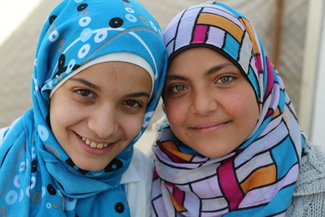

Displaying 211 - 220 of 244
This Album on Kinship Care is a compilation of the works of Syrian refugee children in kinship care and their adult caregivers who took part in the participatory action research undertaken by Save the Children and the Information and Research Center – King Hussein Foundation in Jordan in 2014 in the Zaatari Camp and in the city of Amman.
This Album on Kinship Care is a compilation of the works of Syrian refugee children in kinship care and their adult caregivers who took part in the participatory action research undertaken by Save the Children and the Information and Research Center – King Hussein Foundation in Jordan in 2014 in the Zaatari Camp and in the city of Amman.
This study explores the prevalence and multilevel risk factors of 1,309 Israeli Arab and Jewish adolescents’ experiences of unwelcome sexual behaviors by peers in residential care settings (RCSs) for at-risk children.
This article offers commentary by alternative care expert Zeina Allouche outlining the responsibilities of care centres and the government of Lebanon under international law in regards to the abuses that occur in institutional settings.
This Masters thesis paper, by Michael Maher King of the University of Oxford, reviews the situations of children in institutional alternative care in Israel and Japan.
Many young people rely on their parents when they transition into adulthood. Young people transitioning out of alternative care rarely have that option.
This is a Call to Action issued by the Doha International Family Institute commemorating the International Year of the Family.
Physical victimization by peers was examined among 1,324 Jewish and Arab adolescents, aged 11 to 19, residing in 32 residential care settings (RCS) for children at-risk in Israel.
This systematic review published by the Campbell Collaboration reviewed controlled experimental and quasi experimental studies in which children removed from the home for maltreatment and subsequently placed in kinship care were compared with children placed in non-kinship foster care for child welfare outcomes in the domains of well-being, permanency, or safety.
This article reports on delays in the implementation of a two-year-old law aimed at caring for orphans in the United Arab Emirates apparently linked to the delayed construction of a new and expanded shelter.

